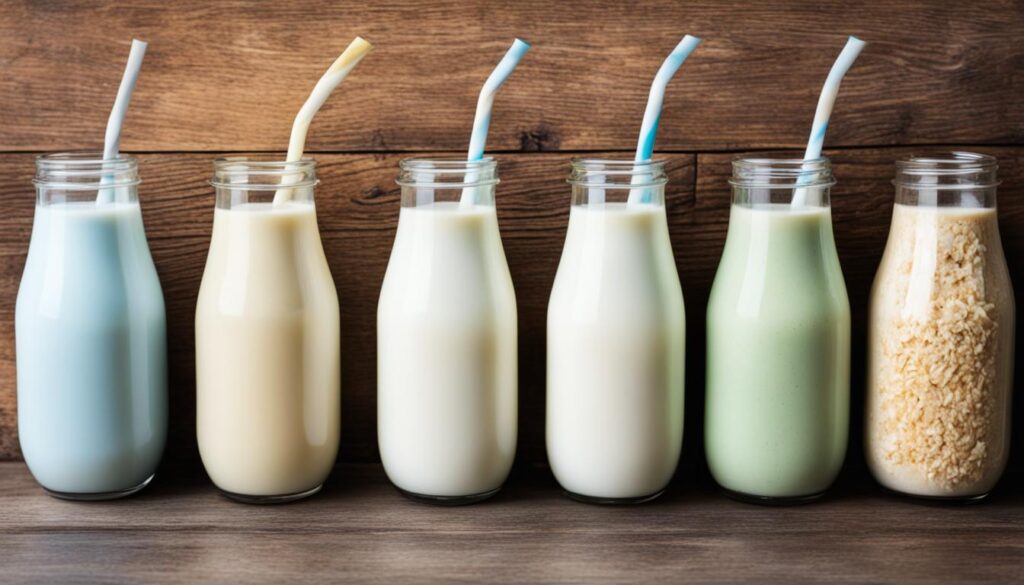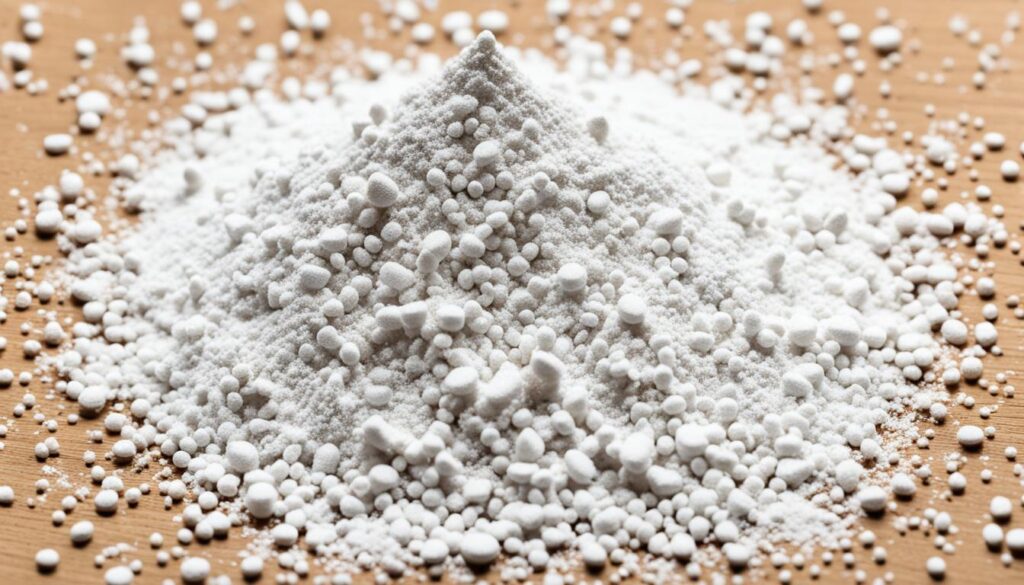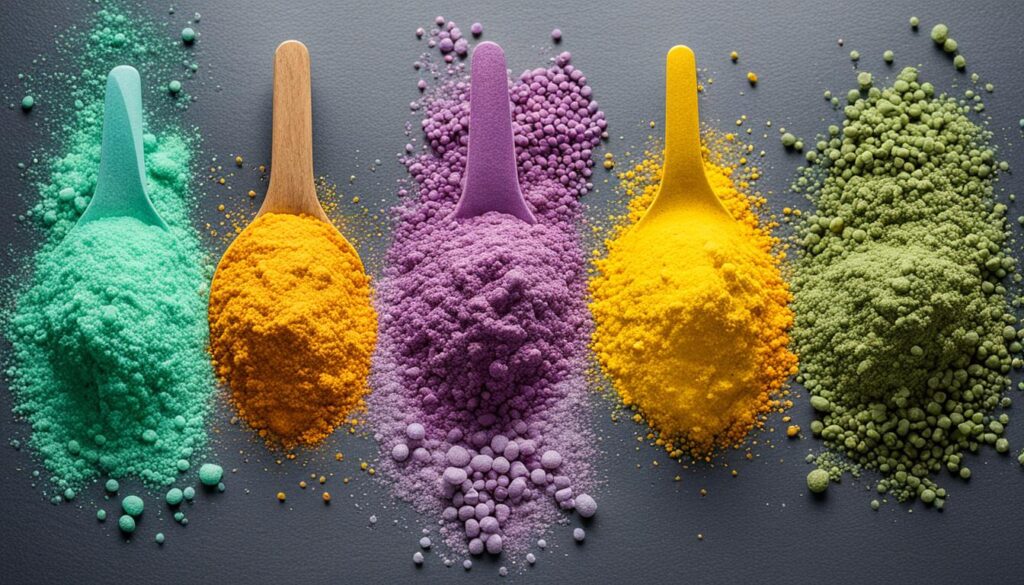Non-dairy or plant-based milk alternatives are becoming quite popular, largely due to milk allergies, lactose intolerance, or ethical concerns. If you are also planning to go dairy-free, then you are in luck because of a wide variety of substitutes available in the market. All these options provide you with plenty of health benefits just like regular milk. Today we’ll be discussing the best non-dairy milk alternatives; Rice, Soy, and Almond Milk.
Rice Milk
Rice milk is made with milled rice and some commercial products often add flavors to improve its consistency and sweetness. Some brands also include vitamins and calcium. It is slightly foamy and lighter than a Cow’s Milk. Rice milk contains more carbohydrates than cow’s milk with no cholesterol and lactose.
Benefits
Some health benefits of rice milk are as follows:
- Good for the Heart
Rice is rich in natural antioxidants, low fat, and no cholesterol, therefore it is ideal for people having heart issues. Rice milk also gives your immune system a boost. Which is an important function of the body that fights against viruses, bacterias, and infections.
- Ideal for people with Lactose intolerance
Lactose intolerance is a condition where some people are not able to digest a type of sugar called lactose found in Cow’s Milk. Rice Milk is a better alternative for normal dairy milk as it does not contain lactose.
- Rich in Vitamin B
Rice milk is a good source of Vitamin B (especially brown rice). As the building blocks of our body, Vitamin B has a direct impact on our metabolism and brain function. It is essential for healthy Skin, Nervous System, and Eyesight.
- Highly Energetic Drink
Due to its high concentration of carbohydrates rice milk is a highly energetic drink along with improved digestion capabilities. Rice milk is consumed by athletes or people trying to gain muscle.
Almond Milk
Almost milk is also plant-based milk made from Almonds, compared to Cow’s milk it is lower in calories and free of cholesterol and fats. It is of a pleasant creamy texture and with a slightly nutty flavor.
Almost Milk is comparatively easier to make at home by grinding almonds, mixing them with water, and then filtering it. It is a popular choice of people looking for a dairy alternative or a vegan diet.
Benefits
- Good for Inflammation and Stress
Inflammation is your body’s reaction to fight against infections and injuries. Almond Milk is rich in Vitamin E, which is a powerful antioxidant that is good for inflammation, stress, and the risk of diseases.
- Bone-Building Calcium
Most Almond Milk products are fortified with Calcium which is an essential mineral to keep your bones and teeth healthy. It is also very important for muscle control and blood circulation. Calcium is not made in our bodies, so it must be present in the foods we eat.
- Easier Alternative
All regular uses of dairy milk can be replaced by Almond Milk. Be it as a refreshing drink, your daily tea/coffee, or for cooking and baking needs.
Disadvantages
- Bad for the Planet
According to the Sustainable Restaurant Association’s Pete Hemingway, “It takes roughly takes around 1,611 US gallons (6,098 liters) liters of water to produce 1 liter of almond milk”. Almond Milk requires more water for cultivation than any other milk alternative.
- Loss of Nutrients
Commercially available Almond Milks contain less than 2% of Almonds. During the production, manufacturers are left with large amounts of “Almond Pulp”, despite this pulp is rich in fiber and other nutrients, it is hard to reuse this in any other product.
Soy Milk
If you looking to get closest to Cow’s Milk then you must prefer Soy Milk as it has almost the same amount of protein. But unlike some cow’s milk, it has little to no saturated fat and cholesterol.
Soy Milk is made by grinding soaked Soya Beans, boiling, and then filtering out the pulp. Commercially available Soy Milk is often fortified with Calcium and Vitamin D.
Benefits
- Rich in Protein
Soy Protein helps lower bad cholesterol. It contains all nine important amino acids. Your body combines these amino acids into new proteins, forming antibodies essential for immune system function and holding your tissues together.
- Helps in Weight Loss
Soy milk contains less sugar and calories than regular dairy milk. One cup of soy milk contains only 7 grams of sugar, while cow milk contains 12 grams of sugar.
- Contains Calcium
Soy milk also helps improve your calcium and iron intake. Calcium is important in your diet to maintain dense and strong bone tissue. Without it, your body consumes the required Calcium from your own bones, which can weaken your bone density over time.
One cup (237 mL) of unsweetened plain soy milk contains about 301 milligrams of calcium. This is close to 30 percent of your recommended daily calcium intake of 1g according to the National Institutes of Health.
Disadvantages
- Soy Milk Allergy
Soy Milk is not safe for people who have soy allergies. According to Food Allergy Research & Education (FARE), soy allergy is one of the top nine food allergies. Soy Milk Allergy can include itching, swelling of lips/tongue/throat, nausea, and abdominal pain.
- Phytic Acid
The high concentration of an anti-nutrient substant called “Phytic Acid” in Soy Milk can reduce the absorption of essential vitamins and minerals like calcium, magnesium, and zinc in the body.
The best option?
All plant-based Milk options are suitable for lactose-intolerant people. However, Rice milk is the least allergenic of all milk products (dairy or plant). People with lactose intolerance or casein allergy are not able to have dairy, and those with soy or nuts allergies cannot drink soy or almond milk.
Rice milk is naturally sweeter so it also does not require any artificial sugar additives. If you are looking for a generous supply of balanced nutrition and are not able to tolerate milk or other milk alternatives Rice Milk may be the best option for you.












